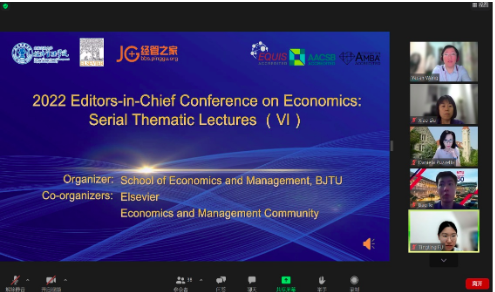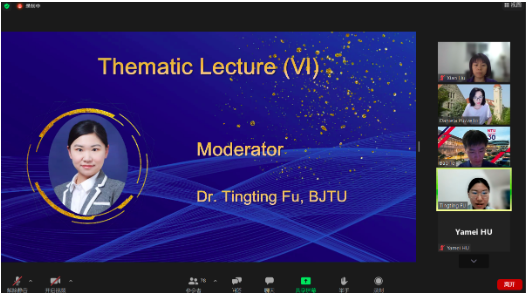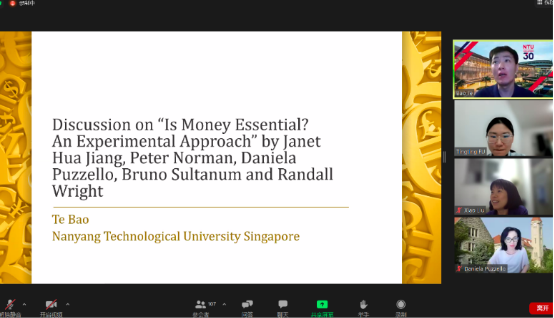The 2022 "Editor in Chief Face to Face" Special Lecture Series in Economics (Part 6): Successful Lecture by the Editor-in-Chief of the Journal of Economic Behavior and Organization

The 2022 "Editor in Chief Face to Face" Special Lecture Series in Economics featured a successful lecture by Professor Daniela Puzzello, the Editor in Chief of the Journal of Economic Behavior and Organization, a leading journal in behavioral economics. The lecture, titled "Is Money Essential? An Experimental Approach," was held on June 28, 2022, from 20:00 to 22:00 Beijing time.

The event was hosted by the School of Economics and Management at Beijing Jiaotong University, co-organized by Elsevier Group and the Economic Management Home Forum, and broadcasted online through various platforms, including Zoom, Bilibili, and the Economic Management Home video account. Dr. Fu Tingting from Beijing Jiaotong University moderated the lecture, and Associate Professor Liu Xiao from Tsinghua University and Associate Professor Bao from Nanyang University of Technology served as guest reviewers. A total of 681 viewers participated online, with 121 attendees on Zoom, 424 on the Management Home video account, and 136 on the Bilibili platform.

Professor Daniela Puzzello, a distinguished economist from Indiana University, specializes in economic theory, experimental economics, and monetary economics. Her research combines theory and experiments to investigate topics such as social norms in transactions, institutional mechanisms for improving welfare, mispricing in capital markets, and the impact of monetary policy on economic outcomes. Her work has been published in prestigious journals like the American Economic Review, Econometrica, and others.
During the lecture, Professor Puzzello explored the role of money in achieving better welfare outcomes through an experimental approach. She designed a finite horizon game experiment involving three participants, where the roles of "consumer" and "producer" were assigned in each encounter. The "consumer" possessed currency and decided whether to pay the "producer," who determined whether to accept the currency and produce. Professor Puzzello distinguished two information conditions, Model N where everyone knows their identity, and Model M where participants only know their roles as consumer or producer, without knowing the encounter's order. She found that in Model N, currency was refused in the final stage of the game, leading to no currency acceptance. In Model M, a mixed strategy equilibrium emerged, with producers accepting currency with a fixed probability.
Additionally, Professor Puzzello introduced "with or without advice" interventions alongside "with or without currency" interventions in the experiment. She found that in Model M, the use of currency led to higher output compared to its absence. Moreover, currency had a more significant impact in Model M, suggesting that advice could be influential under incentive compatibility conditions.
Associate Professor Liu Xiao praised Professor Puzzello's innovative approach and quantification of currency's importance through experiments. He suggested further exploration of research questions, intervention comparisons, stage heterogeneity, and other potential areas for analysis.
Associate Professor Bao Te highlighted the study's contribution to understanding the importance of money in efficiency, especially in the presence of information friction, and the effectiveness of recommendations in promoting currency use. He suggested investigating individual heterogeneity and participants' beliefs regarding cash acceptance by others, as well as exploring spontaneous learning processes over time. Finally, he suggested connecting the research to the rise of digital currencies and possible speculative behavior in related markets.
Professor Daniela Puzzello expressed gratitude for the valuable feedback and engaged in a detailed discussion with the reviewers.
In summary, Professor Daniela Puzzello's lecture provided insights into the experimental analysis of the role of money, while the reviewers offered valuable perspectives for further research and analysis. The event facilitated meaningful interaction and learning opportunities for all participants.









